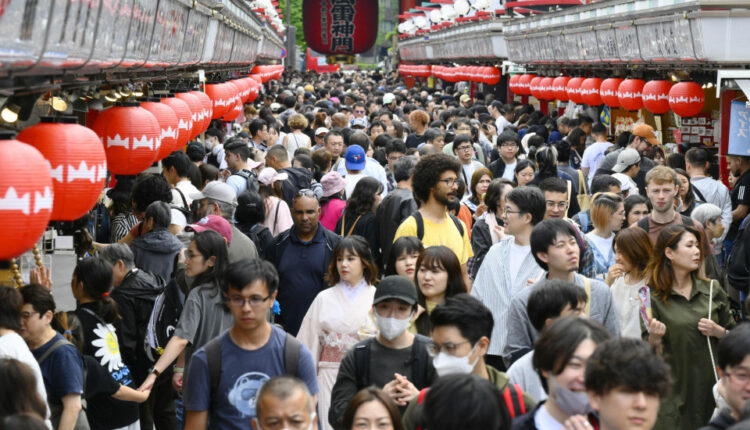
Japan Considers New Tax to Address Overtourism Issues
The Japanese government is contemplating new measures, including tax hikes, to tackle the challenges posed by overtourism.
Japan may currently be the leading destination of choice for most global travelers, yet overtourism is significantly impacting the country negatively.
Locals express concern that foreign arrivals are intrusive to their traditional way of life, often treating cultural icons disrespectfully. Despite tourism boosting the national economy, locals have noticed price hikes in essential goods such as food to accommodate foreign trade.
Consequently, residents urge the government to enact substantial measures to lessen the impact of overtourism.
How did Japan become overtouristed?
A report by global auditing firm Ernst & Young (EY) highlighted that inbound tourism is vital for supporting the Japanese economy. In Q4-2024, foreign spending rose to about JPY7.2 trillion, marking tourism as Japan’s second-largest export sector.
As EY analysts noted: “The recent growth in inbound spending is driven not only by higher spending per trip but also by an increase in foreign tourist numbers.”
The Japan Tourism Agency (JTA) reported a peak of three million foreign visitors in March 2024, maintaining high visitor numbers.
However, locals noted that this influx has posed challenges, including deterioration of public services and inflated prices. Therefore, the EY report warned that this economic growth might have adverse effects on local communities without a proper management framework.
Ongoing Discussions
As of March 3rd, 2025, the Japanese government began discussions on a potential increase to the existing exit tax for foreign travelers. Currently set at US$6.64 per person, officials are contemplating a raise to US$33.20 if it proves effective in mitigating tourism stressors.
Interestingly, the travel sector has voiced opposition against this proposed tax, which could soar fivefold. Travel professionals criticize the piecemeal approach by government agencies in addressing the issue.
As Ashley Harvey states: “Simply charging more and making promises is insufficient. If no action is taken, the consequences tied to overtourism will worsen.”
Moving Forward
EY analysts echo Harvey’s opinion, suggesting that simply imposing tourist taxes is unlikely to resolve public discontent. It might discourage visitors from popular spots, but should primarily be to fund marketing initiatives addressing tourism challenges.
Overall, while tourist tax revenue could bolster efforts to improve residents’ quality of life, tax increases alone will not remedy the ongoing quality-of-life decline in overburdened communities.
Experts warn that the rising cost of living exacerbates frustrations among locals.
To ensure comprehensive financial benefit from tourism for all stakeholders, Japan needs to reassess its organizational and operational strategies in the sector. Analysts propose establishing a dedicated destination management organization (DMO) to oversee tourism sustainably. Organizing DMOs has demonstrated success in nations recovering from overtourism, guiding their industries to operate without unnecessarily exploiting cultural resources.
